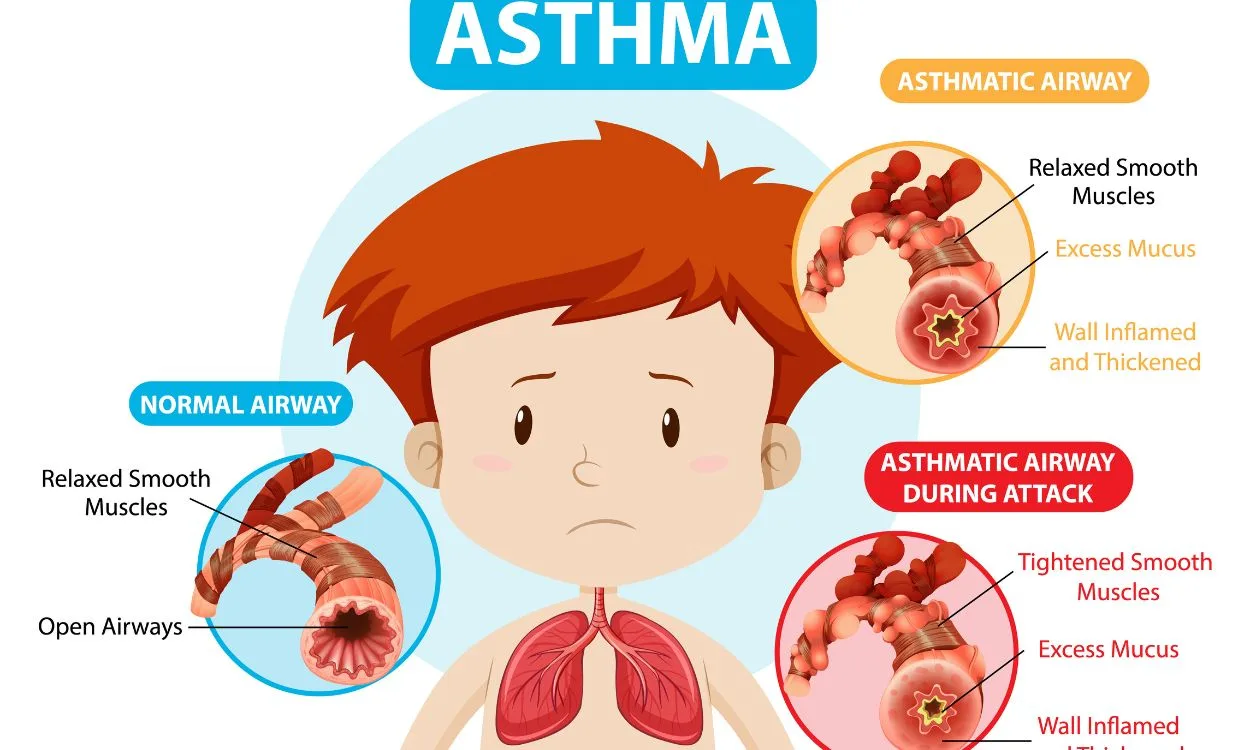What Triggers Asthma Attacks?
Asthma is a chronic respiratory condition that causes inflammation and narrowing of the airways, leading to difficulty in breathing. It is characterized by recurring episodes of wheezing, coughing, chest tightness, and shortness of breath. While the exact cause of asthma is unknown, various triggers can lead to asthma attacks in susceptible individuals. Understanding these triggers is crucial for managing and preventing asthma attacks. Here are some common triggers for asthma attacks:
1. Allergens:
- Pollen: Pollen from trees, grasses, and weeds can trigger asthma symptoms, especially during the spring season.
- Dust Mites: These microscopic insects thrive in bedding, upholstered furniture, and carpets. Their droppings can trigger asthma symptoms.
- Pet Dander: Proteins found in pet saliva, urine, and skin flakes can trigger asthma attacks in individuals allergic to animals.
- Mold: Mold spores present in damp areas such as basements, bathrooms, and kitchens can worsen asthma symptoms.
2. Respiratory Infections:
- Common cold: Viral respiratory infections, such as the common cold, can trigger asthma attacks and exacerbate symptoms.
- Influenza: The flu virus can cause severe respiratory symptoms in individuals with asthma and increase the risk of asthma attacks.
3. Irritants:
- Tobacco Smoke: Both active smoking and exposure to secondhand smoke can irritate the airways and trigger asthma attacks.
- Air Pollution: High levels of air pollution, including particulate matter, ozone, and nitrogen dioxide, can worsen asthma symptoms.
- Strong Odors and Chemicals: Perfumes, cleaning products, paint fumes, and other strong odors or chemicals can irritate the airways and trigger asthma attacks.
4. Physical Activity:
- Exercise-Induced Asthma: Vigorous physical activity or exercise can trigger asthma symptoms in some individuals. It is important to warm up before exercising and use appropriate medications if necessary.
5. Weather Conditions:
- Cold Air: Breathing in cold, dry air can trigger bronchospasm and asthma symptoms in susceptible individuals.
- Humidity: High levels of humidity can promote the growth of allergens such as dust mites and molds, worsening asthma symptoms.
6. Emotions and Stress:
- Emotional Stress: Strong emotions such as laughter, crying, or stress can trigger asthma symptoms in some individuals.
7. Medications:
- Non-Steroidal Anti-Inflammatory Drugs (NSAIDs): Some individuals with asthma may experience asthma attacks after taking NSAIDs such as aspirin or ibuprofen.
It is important for individuals with asthma to identify their specific triggers and take steps to avoid or minimize exposure to them. This may involve making lifestyle changes, such as keeping the home environment clean, using dust mite covers, avoiding smoking, and staying away from known allergens. Additionally, individuals with asthma should work closely with their healthcare providers to develop an asthma action plan, which includes appropriate medications and techniques for managing asthma attacks.
If you are looking for a comprehensive solution to managing your asthma and achieving your health and fitness goals, the Fitpaa app can help. Fitpaa provides personalized fitness plans, nutrition guidance, and real-time monitoring to help you optimize your overall health and well-being. With a team of expert fitness coaches, nutritionists, and doctors, Fitpaa offers a holistic approach to managing asthma and improving your overall health. Download the Fitpaa app today and start your journey towards a healthier and happier life.









